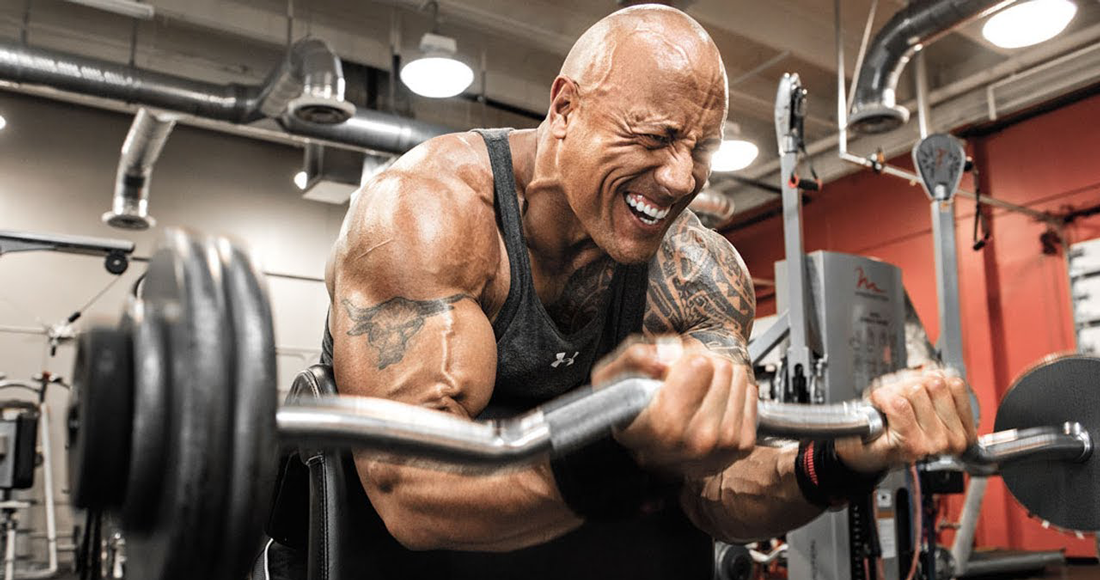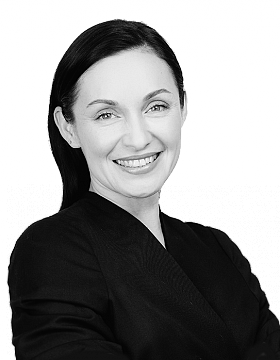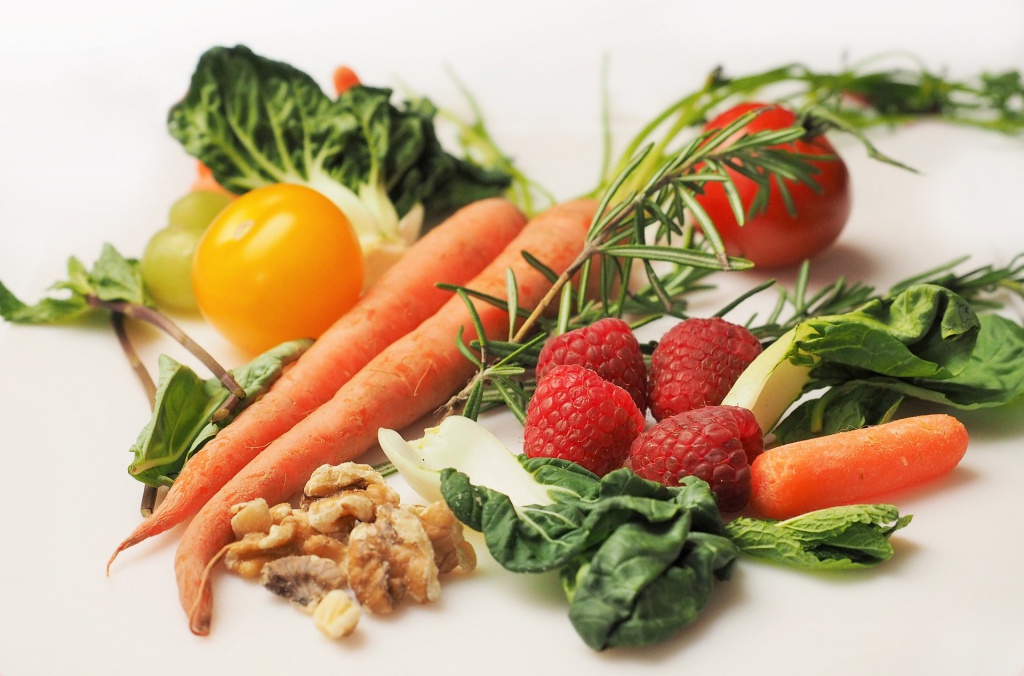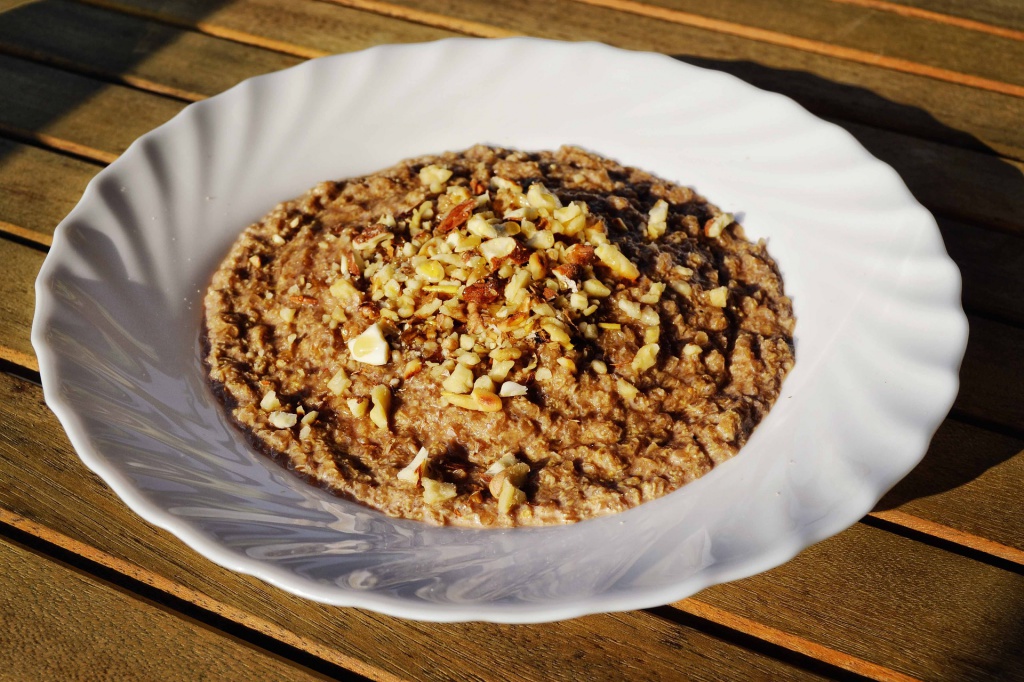
“What food is there for weight loss and muscle growth? How much protein and carbohydrate foods to consume? How often to eat? ”- these topics are often discussed not only by amateur beginners, but also by experienced athletes. The sports environment has given rise to too many myths and speculations. It’s time to dispel them. Today in our blog – an extended commentary by Zinaida Shumakova, personal trainer of the Mango fitness club.
 “What is good for one is bad for another” – one of the main tenets of the theory of bodybuilding. It applies to both training and nutrition for the athlete. Each organism requires an individual approach. If you have embarked on the fitness trail and want to be the owner of a strong, fit body, do not forget to consult a personal trainer and, of course, follow the general recommendations of specialists. Now I will share with you the universal dietary rules.
“What is good for one is bad for another” – one of the main tenets of the theory of bodybuilding. It applies to both training and nutrition for the athlete. Each organism requires an individual approach. If you have embarked on the fitness trail and want to be the owner of a strong, fit body, do not forget to consult a personal trainer and, of course, follow the general recommendations of specialists. Now I will share with you the universal dietary rules.
The more often you exercise, the more strength and energy your body spends on recovery. Therefore, the diet of people with normal and increased physical activity should be different. The latter have a balanced diet, with an increased norm of proteins, carbohydrates and fats, excluding semi-finished products, fast food and other unhealthy products.
Natural food is what will lead you to your athletic goal. Proper nutrition, combined with regular exercise, will not only help you shed those extra pounds, but also gain muscle mass. Control your calorie intake using the chart below.

| Product | Kcal / 100gr | Product | Kcal / 100gr | Product | Kcal / 100gr | Product | Kcal / 100gr |
|---|---|---|---|---|---|---|---|
| Meat (poultry meat products) | Fish and seafood | Milk products | Cereals and legumes | ||||
| Lamb fat | 316 | Granular caviar | 250 | Acidophilus (3.2%) | 58 | Green peas | 280 |
| Ham | 365 | Chum salmon caviar | 245 | Bryndza cow | 260 | Wheat flour | 348 |
| Beef stew | 180 | Pollock roe | 130 | Yogurt (1.5%) | 51 | Rye flour | 347 |
| Roast beef | 170 | Squid | 75 | Fat kefir | 60 | Cocoa powder | 375 |
| Brisket | 475 | Carp | 46 | Kefir 1% | 38 | Buckwheat | 346 |
| Goose | 300 | Fried carp | 145 | Kefir 0% | thirty | Semolina | 340 |
| Turkey | 150 | Chum | 157 | Milk (3.2%) | 60 | Oat groats | 374 |
| Boiled sausage | 250 | Canned fish in oil | 320 | Whole cow’s milk | 68 | Pearl barley | 342 |
| Semi-smoked sausage | 380 | Canned fish | 120 | Ice cream creamy | 220 | Wheat groats | 352 |
| Loin | 430 | Shrimp | 85 | Curdled milk | 59 | Barley groats | 343 |
| Rabbit meat | 115 | Crabs | 70 | Ryazhenka | 85 | Cornflakes | 369 |
| Boiled chicken | 135 | Bream | 48 | Cream 10% | 120 | Pasta | 350 |
| Fried chicken | 210 | Fried salmon | 145 | Cream 20% | 300 | Cereals | 305 |
| Beef liver | 100 | Smoked salmon | 385 | Sour cream 10% | 115 | Rice | 337 |
| Kidney | 66 | Pollock | 70 | Sour cream 20% | 210 | Soy | 395 |
| Sausages | 160 | Seaweed | sixteen | Dutch cheese | 357 | Beans | 328 |
| Pork chop | 265 | Navaga | 44 | Lambert cheese | 377 | Lentils | 310 |
| Pork stew | 350 | Perch | 95 | Parmesan cheese | 330 | Barley flakes | 315 |
| A heart | 87 | Crayfish | 75 | Russian cheese | 371 | Millet | 351 |
| Sausages | 135 | Baltic herring | 98 | Curd cheeses | 380 | Oatmeal | 357 |
| Veal | 90 | Stellate sturgeon | 137 | Cottage cheese 18% | 226 | Nestle corn flakes | 368 |
| Duck | 405 | Atlantic herring | 57 | Curd with sour cream | 260 | ||
| Language | 165 | Zander | 43 | Low-fat cottage cheese | Chicken egg | ||
| Cod | 59 | Chicken egg 1 pc | 65 | ||||
| Sprats in oil | 250 | Egg powder | 540 | ||||
| Pike | 41 | ||||||
| Flounder | 88 | ||||||
Pre-class meal – provides resources for your physical development during and after training. Protein products replenish the balance of amino acids in the body and are responsible for increasing muscle volume, while carbohydrate products provide additional energy for hours of workouts, increase activity and stimulate insulin production.
In order for you to feel light and to exercise freely, your body must have time to absorb food. I recommend eating complex carbohydrates 2-3 hours before training: cereals from various cereals, cereals, legumes and fruits with a glycemic index of up to 60.

Menus
Menu for women
This dosage is an average value. In order to quickly reach the desired sports result, it is better to contact a coach and together with him choose the best option for you.
Water is what your body especially needs in the training process. Taking it in moderation will prevent dehydration and affect the rate of regeneration.
Nutrition during training is a must only for those who are engaged in fitness and bodybuilding professionally, trying to gain weight and preparing for competition. As a rule, such athletes use special sports nutrition cocktails for their own purposes.
Formation of muscles, replenishment of strength and energy, general recovery are the main goals of nutrition after completing a set of exercises. Be sure to consume protein and carbohydrates within 1–2 hours after training. The former – stimulate the growth of muscle tissue, and the latter – maintain the required level of glycogen for 24 hours and contribute to the rapid regeneration of tissues and organs. Don’t rush to eat right away: drink a glass of warm water and take a short walk before eating.
Menus
Menu for women